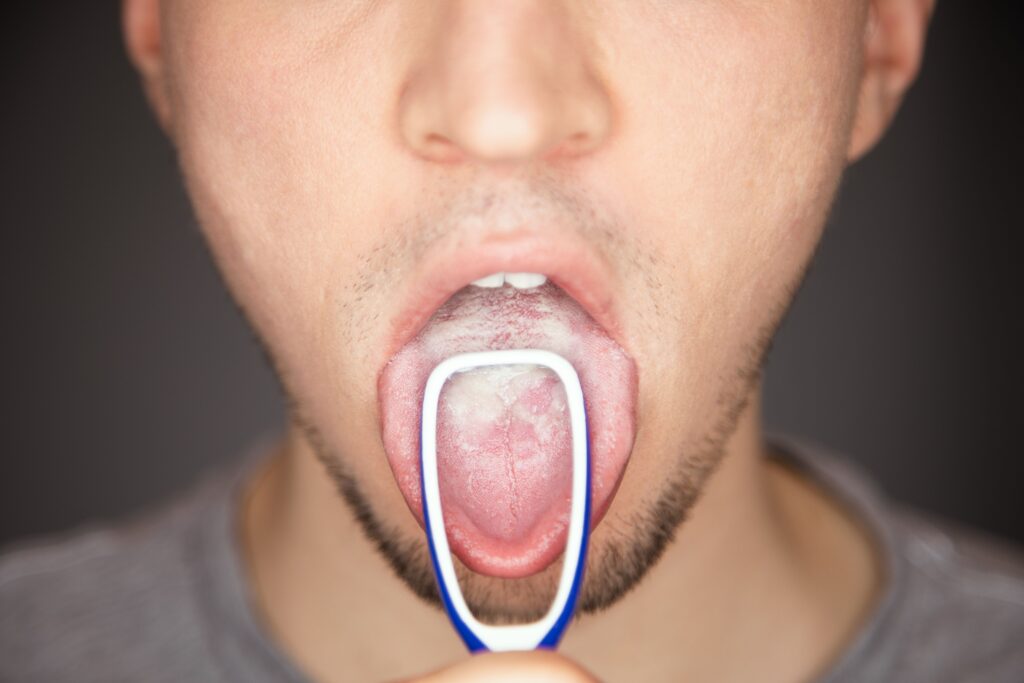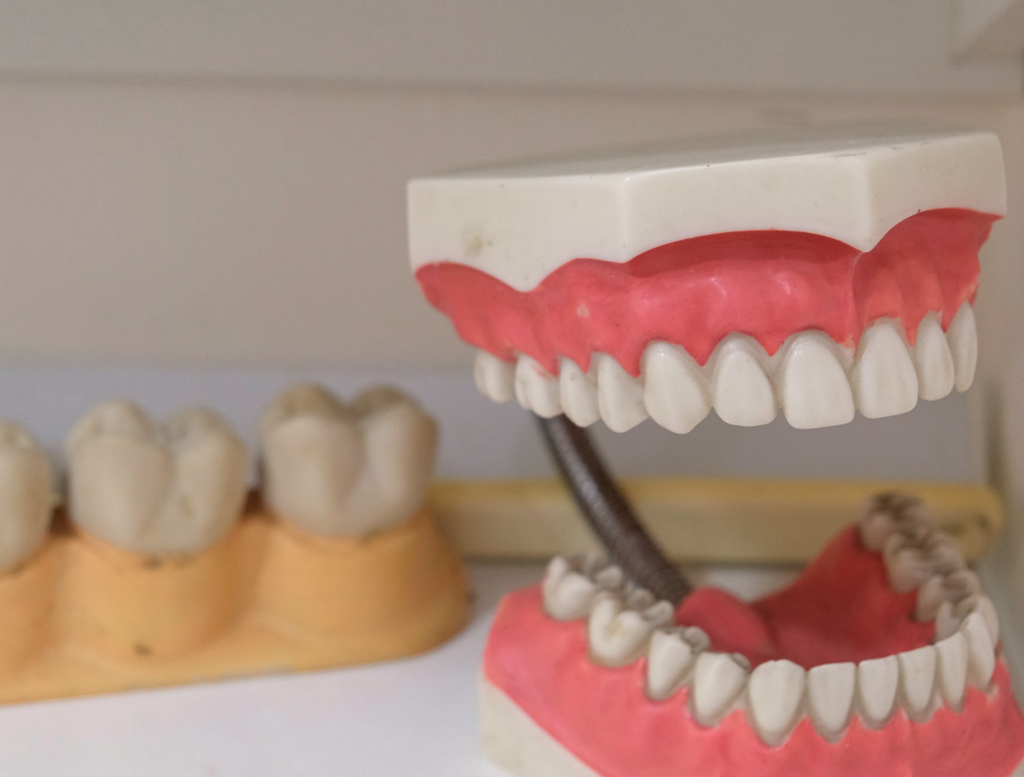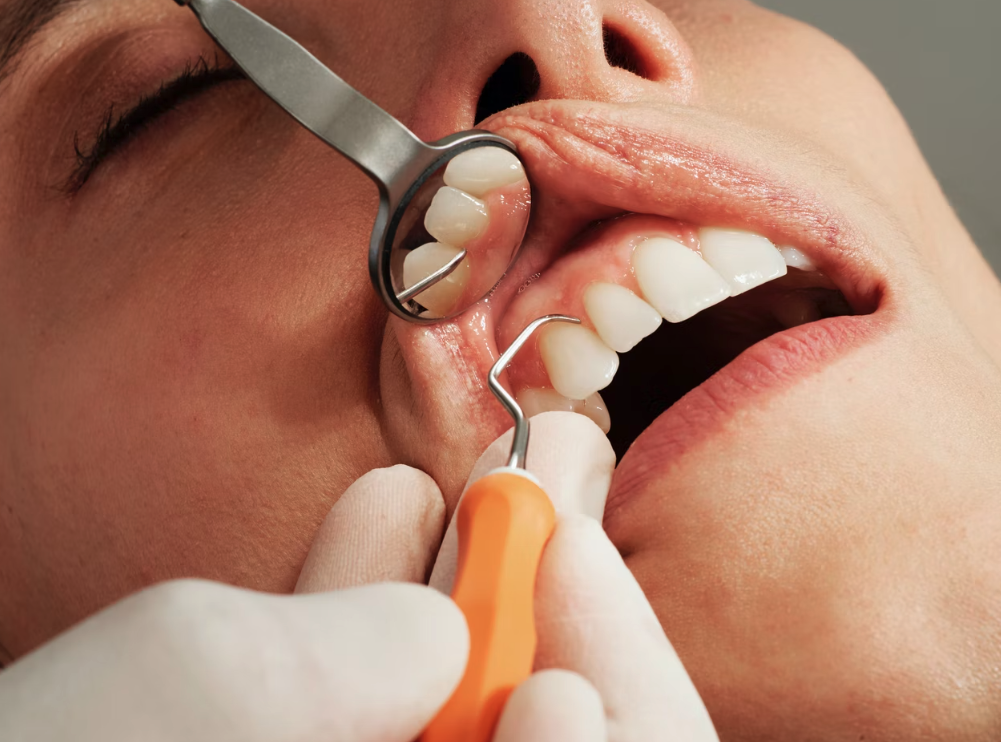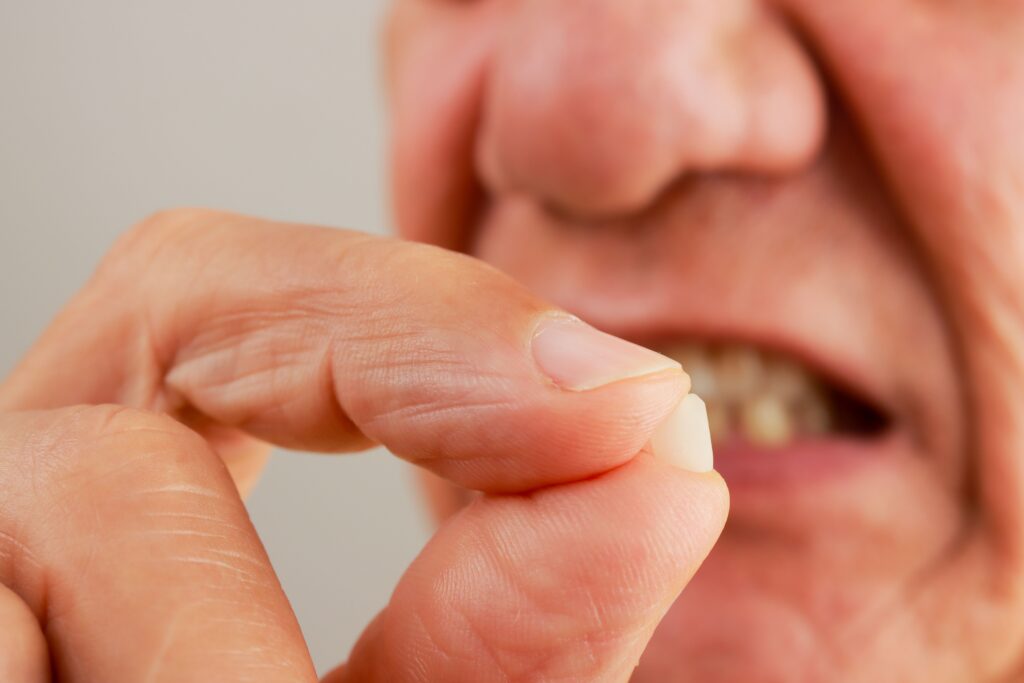Flossing is a crucial part of maintaining good oral hygiene, but there are many questions about how often it should be done. Some people wonder if flossing once a day is enough, while others ask if flossing twice a day is better. There’s also curiosity about whether it’s possible to floss too much. In this article, we’ll explore the benefits of flossing, whether you should do it once or twice a day, and the potential effects of over-flossing.
Is It Better to Floss Once a Day or Twice?

Most dental professionals recommend flossing at least once a day, and this is generally enough to keep your teeth and gums healthy. Flossing once daily helps remove food particles and plaque that can get stuck between your teeth—areas that your toothbrush might not be able to reach. By doing this, you reduce the risk of gum disease, cavities, and bad breath.
However, some people prefer to floss twice a day—once in the morning and once before bed. While there’s no harm in flossing more than once, it might not be necessary for everyone. If you have food stuck between your teeth after a meal or notice that your teeth feel dirty during the day, flossing twice can give you a cleaner, fresher mouth.
- Flossing once a day: This is generally sufficient for most people. It helps prevent plaque buildup, which can lead to cavities and gum disease. Flossing at night is often recommended since it helps remove food debris from the day before you sleep.
- Flossing twice a day: If you feel like you need to floss more often, flossing in the morning and at night can offer added protection, especially if you are prone to getting food stuck between your teeth or if you have gum issues.
In short, flossing once a day is typically enough, but flossing twice a day can provide extra cleanliness and protection for those who feel they need it.
Can You Floss Too Many Times a Day?
While flossing is essential for keeping your teeth and gums healthy, it’s possible to overdo it. Flossing too many times a day can actually cause harm to your gums and teeth.
- Over-flossing: Flossing too frequently or too aggressively can damage your gums. If you floss too hard, you risk cutting or irritating your gum tissue, which could lead to inflammation or even infection over time. Over-flossing can also wear down the enamel on your teeth, increasing the risk of tooth sensitivity or decay.
- Gum damage: The delicate tissues of your gums can be easily irritated by excessive flossing. You might notice that your gums start to feel sore or bleed if you’re flossing too often. It’s important to floss gently and not force the floss between your teeth.
To avoid over-flossing, stick to flossing once or twice a day, using a gentle technique. If you notice pain or bleeding, it might be a sign that you’re being too aggressive or flossing too much.
Should I Floss in the Morning or at Night?
Flossing both in the morning and at night can be beneficial, but most experts recommend flossing before bed if you can only do it once a day. Why? Because when you sleep, your mouth produces less saliva, which makes it easier for bacteria to build up and cause issues like cavities and gum disease. By flossing at night, you’re getting rid of food particles and plaque before you go to bed, which keeps your mouth cleaner overnight.
- Morning flossing: Flossing in the morning can help you start the day with a fresh mouth, especially if you feel like your teeth have plaque buildup overnight or if you’ve eaten a big breakfast. It can also be a good option if you’re prone to getting food stuck between your teeth throughout the day.
- Nighttime flossing: Flossing before bed ensures that you go to sleep with clean teeth and gums. It’s important because bacteria have a better chance to multiply overnight when there’s less saliva in your mouth. Flossing at night can help prevent plaque from hardening into tartar, which is more difficult to remove.
Ultimately, the best time to floss depends on your personal routine, but flossing at night is particularly important for maintaining good oral health.
What Are the Benefits of Flossing?
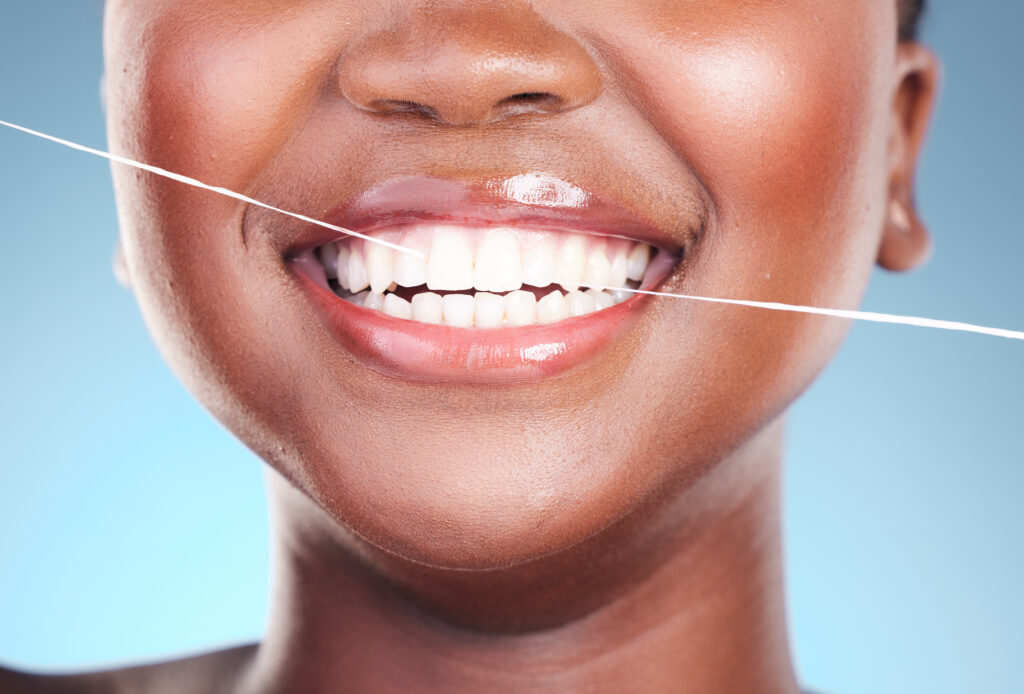
Flossing regularly provides many benefits for your oral health, including:
- Prevents cavities: By removing food particles and plaque from between your teeth, flossing helps prevent cavities. Plaque contains bacteria that produce acid, which can wear down tooth enamel and lead to decay.
- Reduces the risk of gum disease: Gum disease, also known as periodontal disease, is caused by the buildup of plaque around the gums. Flossing helps remove the plaque that can cause your gums to become inflamed and infected. Regular flossing can prevent conditions like gingivitis and periodontitis.
- Freshens breath: Flossing removes food particles that can get stuck between your teeth, which can lead to bad breath. By keeping these areas clean, you’ll have fresher breath and a healthier mouth overall.
- Maintains healthy gums: Flossing helps stimulate your gums, which can help keep them strong and healthy. This is especially important if you’re trying to prevent or manage gum disease.
- Reduces plaque buildup: Plaque forms on your teeth every day, but regular flossing helps remove it before it can harden into tartar. Tartar can only be removed by a dentist, so flossing regularly helps keep your teeth cleaner and healthier between dental visits.
How Do You Floss Properly?
Flossing correctly is just as important as doing it regularly. If you’re not sure whether you’re flossing the right way, here’s a simple step-by-step guide:
- Take enough floss: Start by cutting a piece of floss about 18 inches long. Wind most of it around your middle fingers, leaving about 1-2 inches of floss to work with.
- Guide the floss: Hold the floss tightly between your thumbs and index fingers. Gently slide the floss between your teeth, using a sawing motion to get it in place.
- Curve the floss: Once the floss is between your teeth, curve it into a “C” shape against the side of one tooth. Gently slide the floss up and down, making sure to go beneath the gum line.
- Move to the next tooth: After you’ve cleaned one tooth, move the floss to a clean section and repeat the process for the next tooth.
- Be gentle: Avoid snapping the floss into your gums, as this can cause irritation or bleeding. Instead, move the floss gently and carefully.
Flossing properly is key to preventing damage to your gums and ensuring that you’re getting rid of all the plaque and debris between your teeth.
Can Flossing Cause My Gums to Bleed?

It’s not uncommon for your gums to bleed when you first start flossing or if you haven’t flossed in a while. This happens because your gums may be inflamed due to the buildup of plaque or tartar. However, bleeding should stop once you’ve been flossing regularly for a few days.
- Initial bleeding: If you notice that your gums are bleeding when you first start flossing, don’t worry—it’s normal. As your gums get used to the flossing motion, the bleeding should decrease and eventually stop. Keep flossing regularly, and you should see improvements.
- Ongoing bleeding: If your gums continue to bleed after you’ve been flossing consistently for a week or more, it may be a sign of gum disease. In this case, it’s a good idea to visit your dentist to get your gums checked.
Bleeding gums should not be ignored, but it’s often a temporary issue that can be resolved with regular flossing and good oral hygiene.
Can Flossing Help With Bad Breath?
Yes, flossing can help reduce bad breath. When food particles get stuck between your teeth, they can start to break down and produce an unpleasant odor. Flossing removes these particles, keeping your breath fresh and preventing the buildup of bacteria that can cause bad smells.
In addition to flossing, brushing your teeth twice a day and cleaning your tongue can further help fight bad breath. Remember that bad breath can also be caused by other factors, such as dry mouth or certain foods, so it’s important to maintain a well-rounded oral hygiene routine.
Conclusion
Flossing is an essential part of keeping your teeth and gums healthy. While flossing once a day is usually enough, flossing twice a day can provide extra benefits for some people, especially if you have food stuck between your teeth or gum issues. However, be careful not to over-floss, as this can cause damage to your gums and teeth.
Whether you choose to floss in the morning or at night, make sure you do it regularly to prevent cavities, gum disease, and bad breath. By following the correct flossing technique and maintaining a consistent oral hygiene routine, you’ll keep your mouth healthy and clean for years to come.



